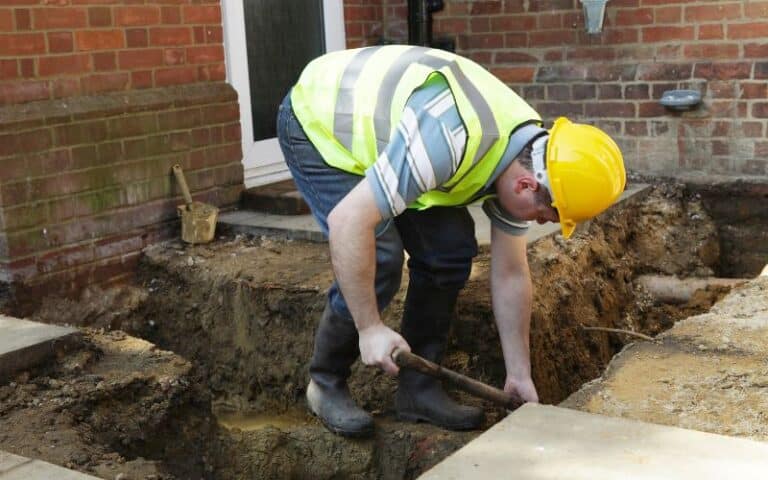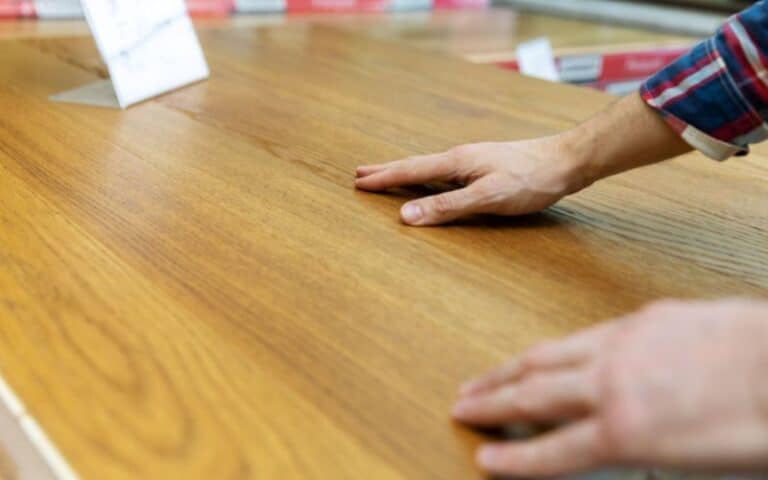Waxed hardwood floors versus polyurethane flooring is a debate you might encounter if you’re a homeowner.
Both floorings have distinct characteristics, and you must consider certain factors when deciding the ideal flooring for your home.
This blog post will discuss the pros and cons of each type of flooring to help you make an informed decision. Ready for an in-depth review? Let’s get started.
Ready for a Flooring Quiz?
Polyurethane Flooring

This material is made of hard and durable plastic, mimicking the look of wood for a more naturalistic appeal.
However, the material’s quality doesn’t match a true hardwood’s finesse, discouraging many homeowners.
The two fundamental types of finishes in polyurethane flooring are oil and water.
Each type has distinguishing features that help you decide which flooring you want around your home.
#1. Oil Based Polyurethane Flooring
If you’re renovating your house on a strict budget, oil-based polyurethane flooring is ideal.
The low-cost finishing is relatively easier to apply than its water-based counterparts. The oil-based finish is also a durable option and beats ordinary lacquer finishing.
Despite these incredible advantages, you must understand why many homeowners dislike this option.
- The weird smell of oil finish is prevalent and takes quite some time before finally reducing.
- The same compounds that emit the weird smell are also toxic
- The oil-based finish is less durable than its water-based counterparts
- The flooring turns slightly amber-toned with an oil-based finish.
- White scratch lines are prevalent and hard to repair with this type of finish
- The plastic flooring is more susceptible to mold growth due to moisture entrapping
#2. Water-Based Polyurethane Flooring
For more naturalistic floors, a water-based finish is the best. You get more durable flooring than an oil-based finish without any amber-toned floors.
With a water-based finish, you need not worry about weird smells as this finish is mainly odorless. The formula is easier to apply and dry.
Hence, you don’t have to wait for ages before installing your dream floors.
Moreover, the abrasion resistance technology protects the floors from wear and tear while reducing the need for constant cleaning.
The water-based formula also contains aluminum oxide, which hardens the surface and increases its longevity.
However, compared to its counterparts, the water-based finish still has some lackings you must know before going through with this option:
- The water-based finish will eventually reveal the true look of the material underneath polyurethane, a plastic. Hence, the fake wood look is often cheap.
- Treat an entire floor instead of only focusing on repairing spots
- Lap marks are widely common with this type of finish which looks unappealing and unfinished
- Compared to an oil-based finish, the water-based finish is more expensive.
Waxed Hardwood Floors
Here are some of the advantages of waxed hardwood floors:
#1. Fine and Polished Look
Comparing waxed hardwood floors versus polyurethane, you would notice a massive difference in how these both look.
If done correctly, the unique finish and rich look of waxed hardwood floors add depth to your home.
Hand application is ideal for giving your hardwoods a waxy finish to condition the wood perfectly.
#2. Number of Coats
A considerable difference you might need to consider is the number of coats and the application style required for waxed hardwood floors versus polyurethane.
Hardwax oil mainly uses electronic tools for buffing the chemicals in, and the oil cleanup through rags removes additional dirt.
In contrast, polyurethane floors require extensive abrasion between each coat, while the dirt and debris lock in if the environment isn’t sterile.
#3. Safer Option for Material and Residents
Wax oil finishes don’t emit pungent smells as they don’t have volatile compounds such as benzene that are known for their distinct aroma.
Hence, you don’t need to escape your own house during its finishing and installation.
Additionally, the wax oil acts as a protective layer to keep the wood from chipping or weakening. This protective layer also protects against moisture to prevent mold growth.
Since the hard wax oil finish doesn’t completely penetrate the cells, the floors still have room to breathe and additional longevity.
Hardwax oil’s protective layer, being more water resistant, allows the hardwood to expand and contract, preventing damage.
#4. Color Options
Wax oil is widely used for coloring floors to match the room’s overall aesthetic.
Hence, a hard wax oil finish can get you both if you want a dark amber hue or a matte texture for your hardwood floor.
With age, the natural patina appears, adding more depth and appeal to the floors.
#5. Spot Repair
Hardwood is the best option if you want a faster and more customized experience with your wood flooring installation.
You can spot-repair hardwood with light sanding and revarnishing instead of entire floor replacement.
There aren’t massive disadvantages of hard wax oil finish. While you’ll require frequent maintenance through oil polishing, you don’t necessarily need a professional.
The glossy surface will also vanish after a few days as the polish settles in and the floor has the usual movement.
However, you must know that hardwoods are more expensive than polyurethane flooring. Hence, you should weigh the options before making the ultimate decision.
Wrapping Up
Waxed hardwood floors versus polyurethane flooring is a tough choice for homeowners looking for budget-friendly but long-lasting flooring options.
Both styles have their unique advantages and disadvantages. However, the ultimate decision depends upon your preference.
Consider the above-elaborated advantages and disadvantages of hardwood and polyurethane flooring before choosing the ideal option for your home.
Your contractor can also assist in making a choice based on what’s popular and durable in your region. All the best!






